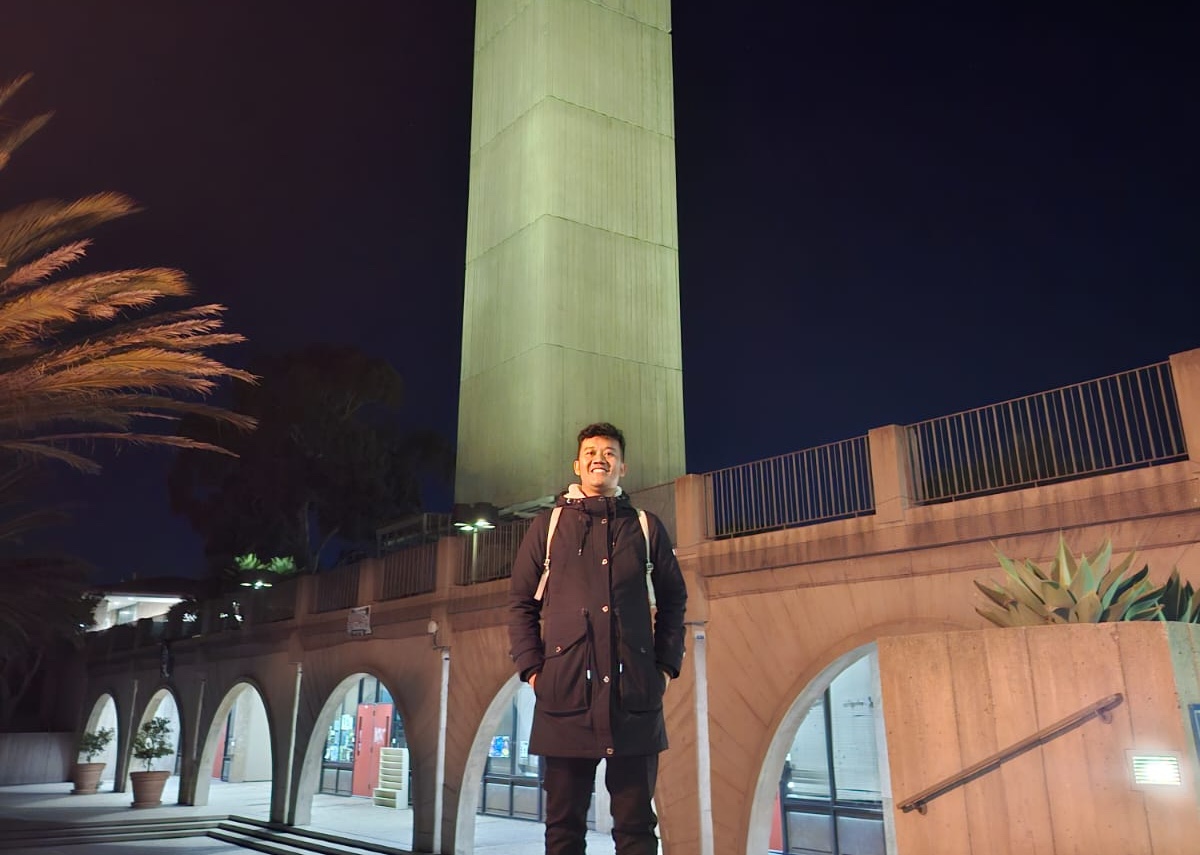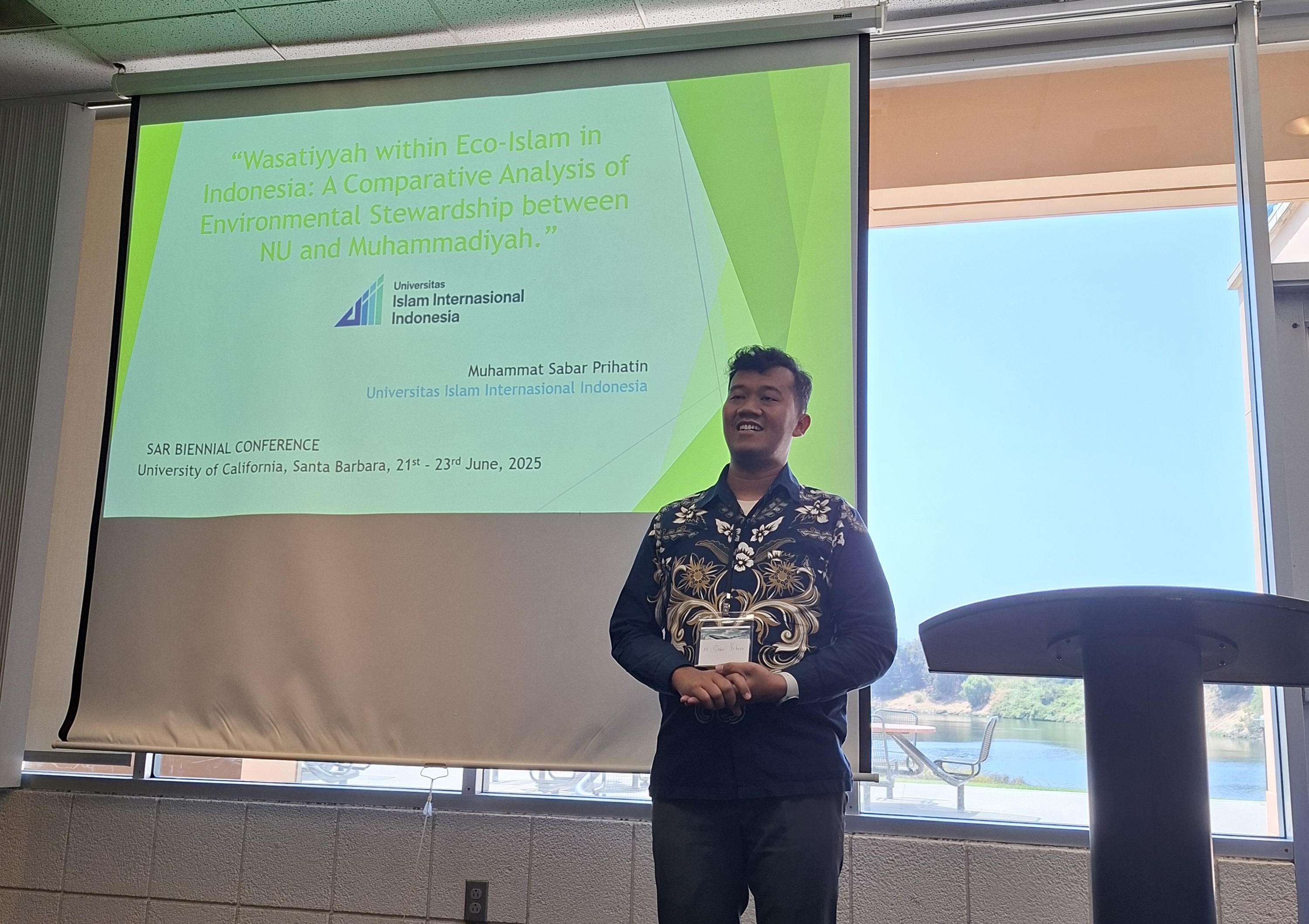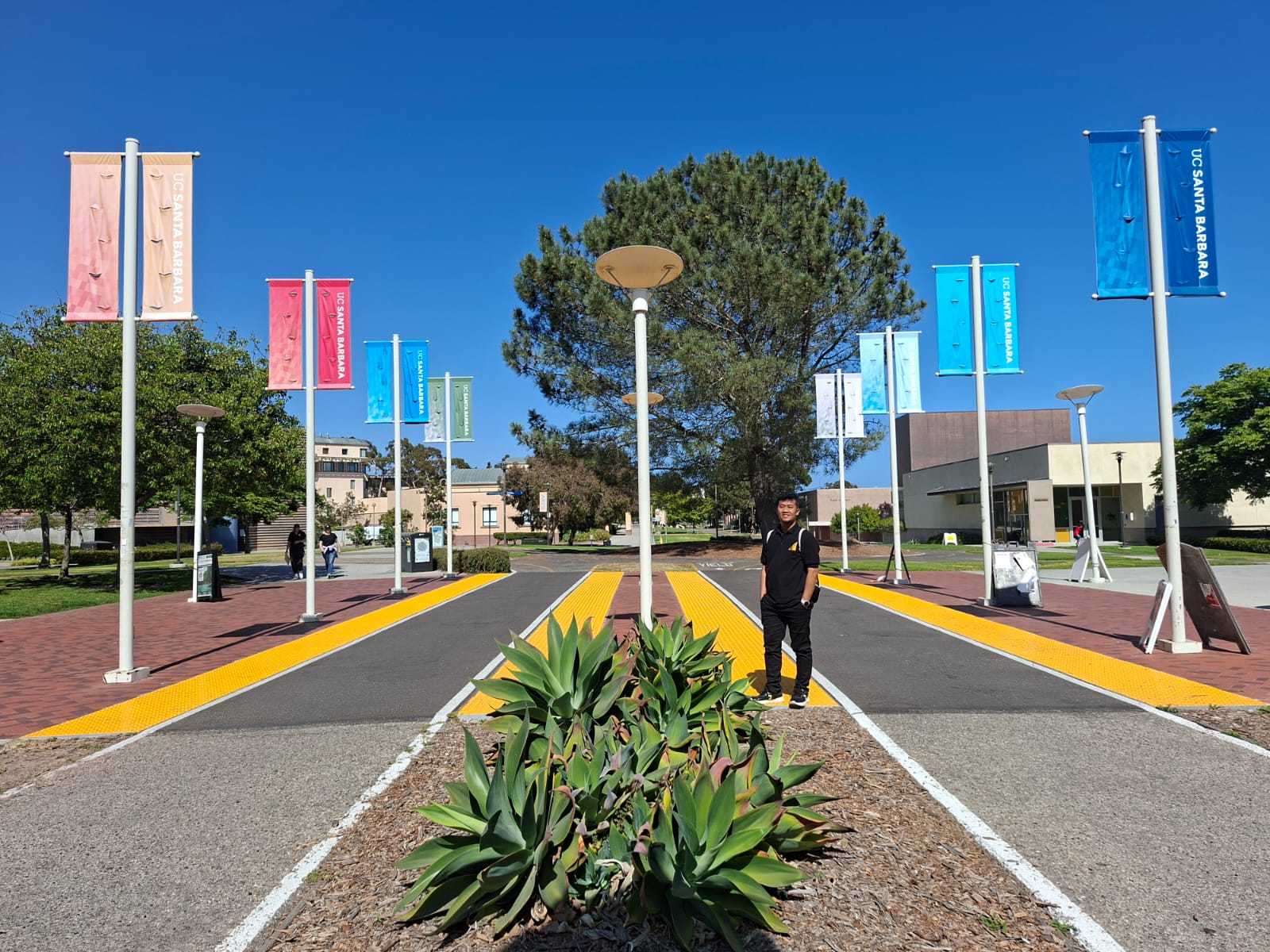More From News
UIII Builds a Bridge to Costa Rica
February 26, 2026
August 4, 2025
Contributor: Supriyono | Editor: Dadi Darmadi | Photo: Muhammat Sabar Prihatin

Santa Barbara, USA — Muhammat Sabar Prihatin, a PhD student at the UIII’s Faculty of Education recently presented his research findings at the Society for the Anthropology of Religion (SAR) Biennial Conference held by the American Anthropological Association. The conference took place from June 21–23, 2025, at the University of California, Santa Barbara.
Themed “Religiosities, Ecologies, and Environmentalisms in the Age of the Anthropocene,” the conference drew hundreds of scholars from top global institutions including Harvard, Stanford, Cambridge, University of Toronto, University of Melbourne, SOAS University of London, and many more.
Sabar was notably the only speaker representing a university from Indonesia. In addition to being accepted as a presenter, Sabar also received one of the only five Travel Grants awarded by the conference organizers. This prestigious grant helped cover travel expenses and facilitated his U.S. visa application.

“Participating in SAR was one of the most meaningful academic experiences I’ve had,” said Sabar. “It was a space where knowledge exchange was driven by a commitment to social and environmental impact.”
As the conference featured interdisciplinary research addressing climate and ecological issues through religious and anthropological lenses, Sabar’s presentation offered a unique contribution by showcasing how Islamic organizations in Indonesia are actively translating faith-based values into concrete environmental action.
His research highlighted the role of Indonesia’s largest Islamic organizations—Nahdlatul Ulama (NU) and Muhammadiyah—in promoting environmentally conscious practices grounded in Islamic teachings and the principle of wasathiyah (moderation).

Reflecting on the conference, he noted that many of the studies presented were grounded in real-world relevance—offering insights and policy recommendations with tangible benefits for communities and ecosystems. “This is what academic forums should strive for,” he explained. “Beyond theoretical debate, they must offer real solutions for humanity and the environment.”
Sabar encouraged fellow students—at UIII and beyond—to actively participate in public academic spaces such as seminars, conferences, and book discussions, even if the topics fall outside their main fields of study. According to him, these forums offer valuable opportunities to broaden one’s intellectual horizons and discover unexpected connections between disciplines.
He also emphasized the importance of making the most of campus resources, including writing clinics and research methodology workshops, as essential tools to sharpen academic skills. “Every human activity is worth studying academically,” Sabar said. “Whether you specialize in one method or explore several, what truly matters is how deeply you understand and apply it. That’s what leads to meaningful research.”
Muhammat Sabar Prihatin’s achievement not only marks a proud moment for UIII but also reflects the university’s growing role in shaping global academic conversations on faith, education, and sustainability.
Universitas Islam Internasional Indonesia